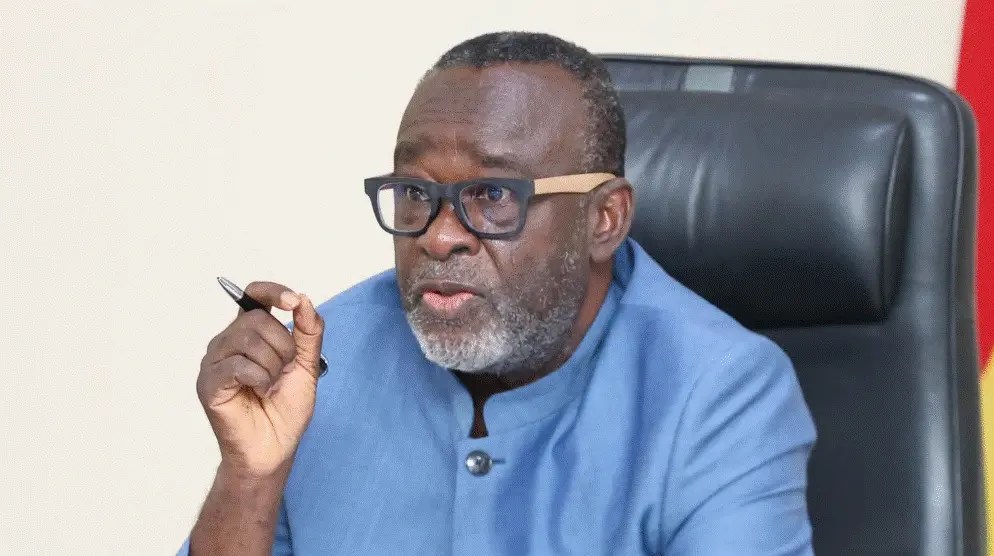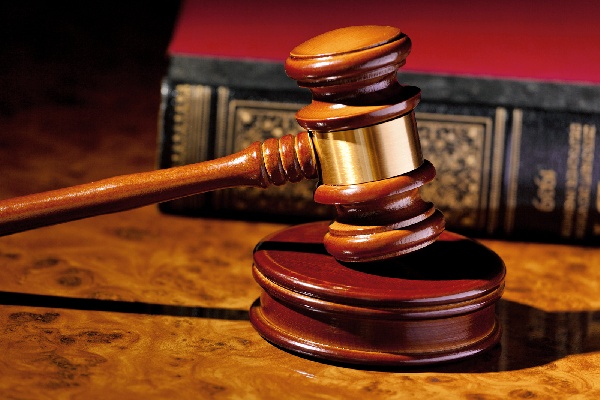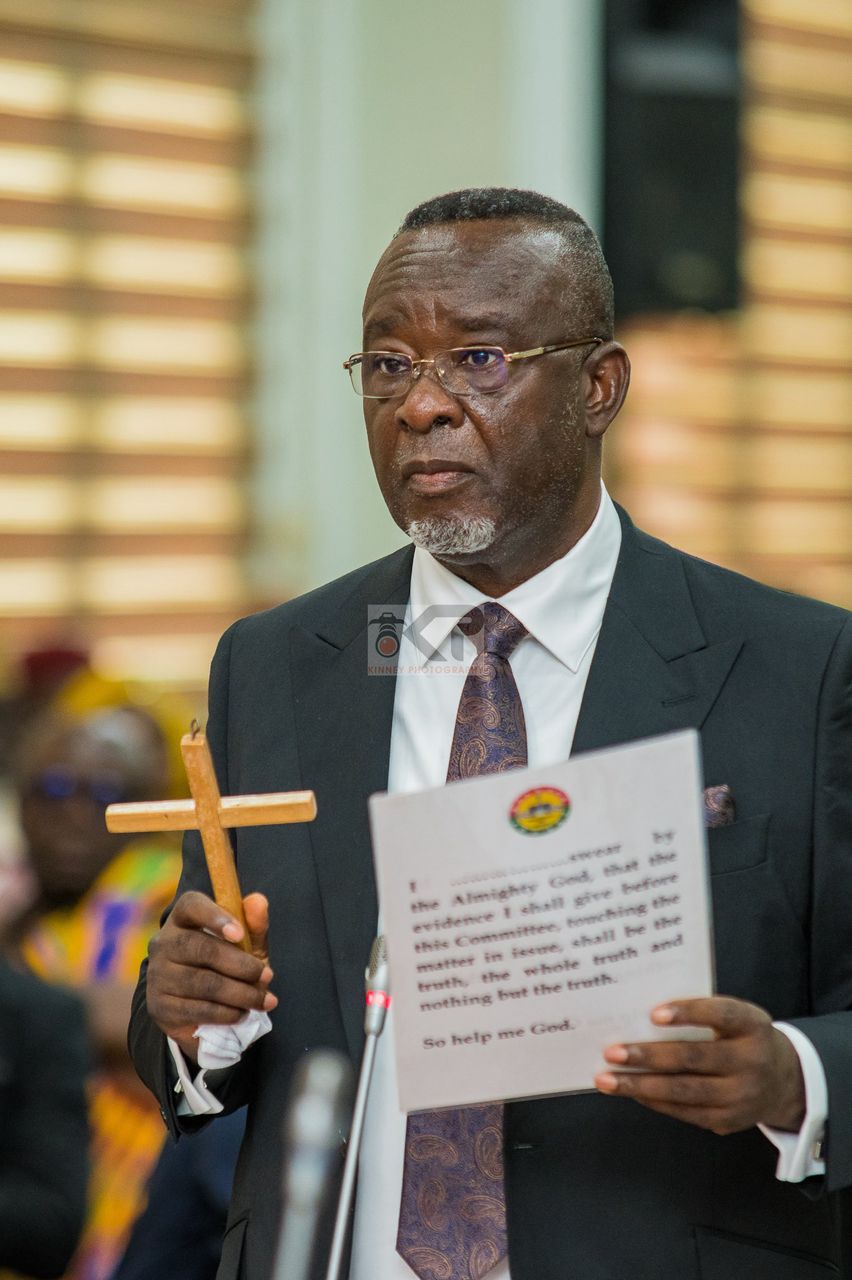Chief Justice nominee, Justice Paul Baffoe-Bonnie, has suggested that Ghana’s judiciary adopt artificial intelligence (AI) technology to enhance transparency, fairness, and efficiency in the process of assigning judges to cases.
Appearing before Parliament’s Appointments Committee on Monday, November 10, 2025, Justice Baffoe-Bonnie said AI systems could help address long-standing concerns about bias and human interference in how judicial panels are formed.
“We should be able to consider empanelling an AI panel of judges,” he told the committee. “AI will be a very good tool for empanelling.”
His proposal comes amid ongoing efforts to modernize Ghana’s justice system and increase public confidence in judicial decision-making.
Justice Baffoe-Bonnie’s comments mark one of the first public endorsements by a senior Ghanaian judge of AI-assisted justice administration. The proposal could have far-reaching implications for judicial transparency, particularly in a country where perceptions of bias and political influence in the courts remain a recurring issue.
For Africa more broadly, the suggestion reflects a growing trend of integrating digital technology and automation into legal and governance systems. Countries such as Kenya, South Africa, and Nigeria have already begun exploring AI tools for case management and legal research. Ghana’s consideration of AI for judge assignment could position it as a regional leader in digital judicial reform.
Legal analysts say the use of technology in empanelling judges could minimize human bias, reduce delays, and create a consistent, verifiable process for case allocation. However, they also caution that the judiciary must ensure any AI system adopted is transparent, accountable, and ethically designed to uphold constitutional principles.

Justice Baffoe-Bonnie’s vetting took place under unusual circumstances following the removal of Chief Justice Gertrude Araba Esaaba Sackey Torkornoo, an event that has generated intense public debate and a series of legal challenges.
The process has been politically charged, with Minority Members of Parliament announcing a boycott of the vetting session. They argue that the nomination process lacks transparency and raises questions about judicial independence and constitutional propriety.
According to the Minority, Justice Baffoe-Bonnie had previously presided over legal matters connected to the former Chief Justice’s removal — a factor they claim could undermine public trust and compromise perceptions of impartiality if he were appointed to lead the judiciary.
Despite the boycott, the vetting proceeded with majority members of Parliament in attendance, signaling the ruling government’s determination to expedite the nomination process.
Justice Baffoe-Bonnie’s call to integrate AI into judicial procedures reflects a global shift toward digital transformation in legal systems. Around the world, AI tools are being used to assign cases randomly, predict court schedules, and assist in legal research — helping to improve efficiency and reduce administrative delays.
In Ghana, where courts have long struggled with case backlogs and limited administrative capacity, experts believe AI could significantly improve workload distribution and promote fairness.
However, the use of AI in legal processes raises critical ethical and technical questions. Stakeholders have emphasized the need for clear *data governance policies, **human oversight, and *algorithmic transparency to prevent bias and ensure accountability.
Professor Ernest Kofi Abotsi, a legal scholar at the University of Professional Studies, notes that while automation can enhance trust in judicial administration, “AI systems are only as impartial as the data and rules that guide them.” He cautioned that adopting such technology without robust regulation could reproduce existing inequalities or create new forms of digital bias.
Justice Baffoe-Bonnie: Ghana’s Path Toward Digital Justice

Over the past few years, the Judicial Service of Ghana has introduced several digital initiatives to improve efficiency. These include the e-justice platform, launched in 2019, which enables electronic filing, virtual hearings, and document management in selected courts.
The introduction of AI into the judge-selection process would represent a further step toward modernization. Legal technology advocates have argued that combining the e-justice system with AI-based allocation could make court operations more transparent and predictable, while freeing up administrative time for more complex judicial functions.
According to Ministry of Justice data, the digitization of court processes has already cut average filing times by over 30% in pilot courts. Expanding such tools to other judicial functions, such as judge empanelling, could help Ghana achieve a more data-driven justice system.
Across Africa, several countries are testing AI-driven judicial technologies. In *Kenya, the judiciary has begun exploring automated case-tracking systems. *South Africa has piloted predictive analytics tools to help reduce delays in the high courts. Meanwhile, Rwanda has integrated AI chatbots to assist citizens with legal inquiries.
If adopted responsibly, Ghana’s experiment with AI empanelling could strengthen the country’s reputation for judicial innovation in West Africa. However, experts warn that any implementation must be preceded by extensive stakeholder consultation, data privacy safeguards, and strong legal frameworks to prevent misuse.

The proposal has sparked mixed reactions among legal professionals and civil society groups. Some have welcomed it as a forward-looking measure to rebuild public confidence in the judiciary after months of controversy. Others question whether AI can truly ensure impartiality without human oversight.
Civil society organizations such as the Ghana Integrity Initiative have called for broader discussions on the ethical implications of AI in justice, including how to maintain accountability and transparency in automated systems.
For now, the focus remains on Justice Baffoe-Bonnie’s confirmation process. If approved, he will inherit a judiciary navigating both technological transformation and institutional skepticism — a delicate balance requiring both innovation and prudence.
Justice Baffoe-Bonnie’s vision of using AI to assign judges represents a bold and modern approach to judicial reform. Whether Ghana chooses to pursue this path will depend on how policymakers, judges, and the public balance innovation with accountability.
As the judiciary faces increasing scrutiny, technology may offer new tools for fairness — but trust, as many observers note, will still depend on the integrity of those who wield it.

